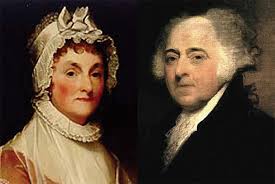The Wisdom Chronicle
The Wisdom Chronicle is designed to bring nuggets of wisdom from the dozens of books I read every year. I endeavor to share the best of what I have gleaned. The determination of relevance lies with you. Blessings, J. Whiddon
511. LAWS “It will be of little avail to the people that laws are made by men of their own choice if the laws be so voluminous that they cannot be read, or so incoherent that they cannot be understood.” –A. Hamilton
512. PERSECUTION : “The patriot, like the Christian, must learn to bear revilings and persecutions as a part of his duty; and in proportion as the trial is severe, firmness under it becomes more requisite and praiseworthy. It requires, indeed, self-command. But that will be fortified in proportion as the calls for its exercise are repeated.” — Thomas Jefferson
513. INFORMATION UNDERLOAD “Automation actually places added and unexpected demands on people, burdening them with extra work. Researchers worry that the lassitude produced by information underload is going to be a particular danger with coming generations of automotive automation. As software takes over more steering and braking chores, the person behind the wheel won’t have enough to do and will tune out. Making matters worse, the driver will likely have received little or no training in the use and risks of automation. Some routine accidents may be avoided, but we’re going to end up with even more bad drivers on the road.”
Excerpt From: Carr, Nicholas. “The Glass Cage: Automation and Us.”
514. WISDOM ABOUT WEALTH “That some should be rich shows that others may become rich & hence is just encouragement to industry & enterprise.” — A. Lincoln
515. TAXATION At the beginning of the dynasty taxation yields a large revenue from small assessments. At the end of the Dynasty taxation yields a small revenue from large assessments.” –Ibn Khaldoun (Moslem Phil. 14th Century)
516. VIRTUE PROTECTS A NATION Samuel Adams, the great American patriot accused by King George III of being “the chief rabble-rouser” of American independence, wrote the following in a letter to James Warren, the president of the Provincial Congress of Massachusetts, in 1779:
“A general dissolution of principles and manners will more surely overthrow the liberties of America than the whole force of the common enemy. While the people are virtuous they cannot be subdued; but when once they lose their virtue, they will be ready to surrender their liberties to the first external or internal invader. How necessary then is it for those who are determined to transmit the blessings of liberty as a fair inheritance to posterity, to associate on public principles in support of public virtue.”
God said that He will never leave us or forsake us, but if we leave Him, what then? In Joshua 7, God’s people turned their backs on God and did not obey Him. Only when we are in God’s perfect will, only when we have forsaken sin, will we have the privilege of His presence with us.
Excerpt From: Lee, Richard. “In God We Still Trust: A 365-Day Devotional.”
517. KNOW IT ALL? “The sea gets deeper as you go further into it.” The more you know, the more you realize how much there is to know. You really don’t have to pretend to know everything. Admitting ignorance can be bliss.”
Excerpt From: Roberts, Russ. “How Adam Smith Can Change Your Life.”
518. QUEST FOR EQUALITY “We know from history that any society foolish enough to experiment with Marxism will find that the quest for equality results in a lower standard of living for all. Similarly, any society foolish enough to embrace cultural relativism will find that the quest for equality results in a lower overall standard of morality.”
Excerpt From: Adams, Mike. “Letters to a Young Progressive.”
519. BLACK REVOLUTIONARIES “The first man killed in the American Revolution was a black man. When British soldiers fired on an angry, taunting Boston crowd in 1770, they killed the man who led the “riot” with their first volley. His name was Crispus Attucks, a sailor, a runaway slave, and a black man. He died in what is now known as the Boston Massacre, the first martyr of the revolutionary cause. Blacks rallied to the cause. They crossed the Delaware with Washington and were with him at Valley Forge. It was a black man named Prince who captured British General Prescott, commander of the Royal Army at Newport, Rhode Island. It was another black man, Salem Poor, who distinguished himself so gallantly in battle that fourteen American officers praised him before Congress. In fact more than five thousand blacks fought in defense of liberty at battles like Monmouth, Saratoga, Princeton, and Yorktown.”
Excerpt From: Mansfield, Stephen. “Then Darkness Fled.”
520. HOW PRESIDENTS ONCE TALKED
https://www.youtube.com/embed/OvN1jTkzXbY?rel=0



Leave a Reply
Want to join the discussion?Feel free to contribute!